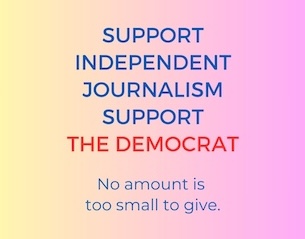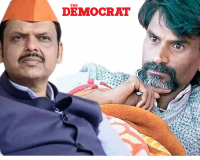- Editorial
- Editorial by Rahi Bhide | In the End, What Was Gained?
Editorial by Rahi Bhide | In the End, What Was Gained?

Editorial by Rahi Bhide
Though Manoj Jarange ended his fast for Maratha reservation, the pressing questions still linger: What exactly did the Maratha community gain from this agitation? And how will the government’s ordinance affect the OBC community? On one hand, some claim the ordinance offers the Marathas nothing substantial. On the other, some in the OBC community view it as a threat to their own reservation rights. As a result, both communities have decided to challenge the ordinance in the High Court, revealing a deep sense of unease.
Jarange Patil launched his fast demanding eight key points, including blanket reservation for the Maratha community and withdrawal of cases against protestors. The government accepted six of these, leading to the suspension of the fast. There was celebration among Marathas; however, just like during the earlier Khargar protest, the government responded with an ordinance essentially identical to the previous one. While Jarange and his supporters expressed satisfaction, many legal experts have opined that the ordinance offers nothing concrete in terms of actual benefit.
Notably, even as the government assured withdrawal of criminal cases, police registered fresh cases against protestors returning from the rally. This contradiction has cast doubt on the government’s intent. Earlier, Eknath Shinde had taken the lead in addressing such protests; this time, Devendra Fadnavis relied on Radhakrishna Vikhe Patil, who consulted with legal experts and mediated between Jarange and the state. Eventually, both sides took a step back, possibly pressured by the looming threat of judicial scrutiny, to bring the protest to a close.
Still, the real question remains: What did the Maratha community truly gain? Many argue that the government conceded only administrative adjustments like extending deadlines for genealogy verification and implementing the Hyderabad Gazette. These steps, though significant on paper, raise the question of why the government waited until protests reached Mumbai before acting.
Jarange’s indefinite fast at Azad Maidan pushed the government to enforce the Hyderabad Gazette and permit the issuance of Kunbi caste certificates to certain Marathas. However, this move has sparked confusion within the Maratha community what exactly does it mean for them? Meanwhile, among OBCs, there's growing concern that this could dilute their own reservation share. Jarange warned the government not to deceive the Marathas again, but leaders like Vinod Patil and others claim deception has already occurred. Yet, Jarange remains optimistic, asserting that the GR (Government Resolution) will ultimately benefit the Marathas.
This optimism is not shared by all. OBC leaders in the state burned copies of the resolution in protest. Chhagan Bhujbal, despite being part of the cabinet, vocally opposed the ordinance and is preparing to challenge it in court. He even boycotted a cabinet meeting in protest. Nevertheless, he has urged the OBC community to maintain restraint and pursue legal avenues instead of public agitation. While Fadnavis emphasized that only individuals with documented ancestral records would receive Kunbi certificates, Chandrashekhar Bawankule chairman of the OBC subcommittee publicly contradicted him, stating that the Hyderabad Gazette is effectively useless in proving Kunbi lineage. These conflicting statements have only fueled confusion within the Maratha community.
Adding to the tension, Prof. Laxman Hake launched an “OBC Reservation Protection Yatra,” while Babanrao Taywade, president of the OBC Mahasangh, undertook a hunger strike, asserting that the ordinance poses no threat to OBC rights. However, contradictory opinions within both Maratha and OBC groups indicate that a climate of uncertainty prevails across communities.
To ensure that the government doesn’t appear biased toward the Marathas, a cabinet subcommittee under Bawankule was formed to address OBC concerns. It includes ministers from all major ruling alliance parties. Still, internal disagreements persist. While Pankaja Munde claims the Hyderabad Gazette does not undermine OBC rights, Bhujbal maintains a contradictory stance.
The GR itself includes a clause that permits individuals without land ownership proof to submit affidavits affirming local residency. These affidavits, if supported by Kunbi-certified relatives, can lead to certificate issuance. OBC leaders are particularly alarmed by this clause, fearing that Marathas could infiltrate the OBC quota using such provisions.
Now, even among Maratha reservation advocates, there's growing skepticism. Many believe the GR offers little more than symbolic assurance, a situation summed up by former Justice B.G. Kolse Patil’s harsh remark: "It’s like digging a mountain and finding a mouse." He criticized the state for offering vague policies and wiping the Maratha community’s face with empty promises.
Under current rules, any claim to reservation must be backed by documentary evidence dated prior to 1967. The GR does mention requirements for landless or farm laborer Marathas, but it also requires in-depth verification through field officers like revenue officials. Only those who already have genealogical records or family references from the Hyderabad Gazette will benefit. What about those whose families have no such documentation? What is their future?
Ultimately, the editorial underscores a painful irony: despite dramatic protests, fasting, negotiations, and apparent breakthroughs, the tangible gains for the Maratha community remain ambiguous, while fears among the OBCs grow. Once again, the state finds itself entangled in the complexities of reservation politics with more questions than answers, and more confusion than clarity.
So, in the end — what was truly gained?
A pertinent question that continues to echo across Maharashtra.
000











